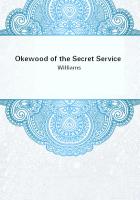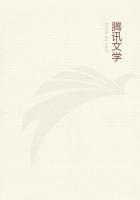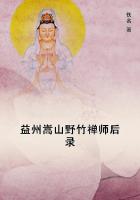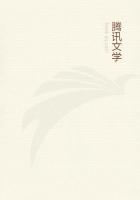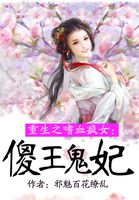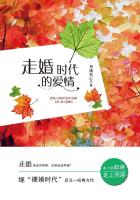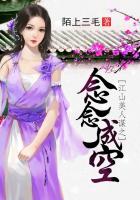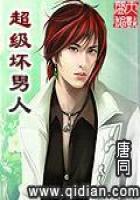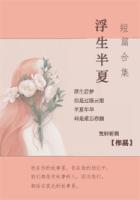Nothing could reveal more clearly than this list how we are distinguishing the Bible as literature from the Bible as an authoritative book in morals.One would much dislike to credit the Bible with any part of the personal life of Shelley or Byron.They were friends; they, were geniuses; but they were both badly afflicted with common moral leprosy.It is playing with morals to excuse either of them because he was a genius.Nothing in the genius of either demanded or was served by the course of cheap immorality which both practised.It was not because Shelley was a genius that he married Harriet Westbrook, then ran away with Mary Godwin, then tried to get the two to become friends and neighbors until his own wife committed suicide; it was not his genius that made him yield to the influence of Emilia Viviani and write her the poem "Epipsychidion," telling her and the world that he "was never attached to that great sect who believed that each one should select out of the crowd a mistress or a friend" and let the rest go.That was not genius, that was just common passion; and our divorce courts are full of Shelleys of that type.So Byron's personal immorality is not to be explained nor excused on the ground of his genius.It was not genius that led him so astray in England that his wife had to divorce him, and that public opinion drove him out of the land.It was not his genius that sent him to visit Shelley and hismistress at Lake Geneva and seduce their guest, so that she bore him a daughter, though she was never his wife.It was not genius that made him pick up still another companion out of several in Italy and live with her in immoral relation.In the name of common decency let no one stand up for Shelley and Byron in their personal characters! There are not two moral laws, one for geniuses and one for common people.Byron, at any rate, was never deceived about himself, never blamed his genius nor his conscience for his wrong.These are striking lines in "Childe Harold," in which he disclaims all right to sympathy, because,"The thorns which I have reaped are of the tree I planted,--they have torn me and I bleed.I should have known what fruit would spring from such a tree."Shelley's wife would not say that for him."In all Shelley did," she says, "he at the time of doing it believed himself justified to his own conscience." Well, so much the worse for Shelley! Geniuses are not the only men who can find good reason for doing what they want to do.One of Shelley's critics suggests that the trouble was his introduction into personal conduct of the imagination which he ought to have saved for his writing.Perhaps we might explain Byron's misconduct by reminding ourselves of his club-foot, and applying one code of morals to men with club-feet and another to men with normal feet.
If we speak of the influence of the Bible on these men, it must be on their literary work; and when we find it there, it becomes peculiar mark of its power.They had little sense of it as moral law.Their consciences approved it and condemned themselves, or else their delicate literary taste sensed it as a book of power.
This is notably true of Shelley.When he was still a student in Oxford he committed himself to the opinion of another writer, that "the mind cannot believe in the existence of God." He tries to work that out fully in his notes on "Queen Mab." When he was hardly yet of age he himself wrote that "The genius of human happiness must tear every leaf from the accursed Book of God, ere man can read the inscription on its heart." He once said that his highest desire was that there should be a monument to himself somewhere in the Alps which should be only a great stone with itsface smoothed and this short inscription cut in it, "Percy Bysshe Shelley, Atheist."It would seem that whatever Shelley drew of strength or inspiration from the Bible would be by way of reaction; but it is not so.However he may have hated the "accursed Book of God," his wife tells in her note on "The Revolt of Islam" that Shelley "debated whether he should devote himself to poetry or metaphysics," and, resolving on the former, he "educated himself for it, engaging himself in the study of the poets of Greece, England, and Italy.To these, may be added," she goes on, "a constant perusal of portions of the Old Testament, the Book of Psalms, Job, Isaiah, and others, the sublime poetry of which filled him with delight." Not only did he catch the spirit of that poetry, but its phrases haunted his memory.In his best prose work, which he called A Defense of Poetry, there is an interesting revelation of the influence of his Bible reading upon him.Toward the end of the essay these two sentences occur: "It is inconsistent with this division of our subject to cite living poets, but posterity has done ample justice to the great names now referred to.Their errors have been weighed and found to have been dust in the balance; if their sins are as scarlet, they are now white as snow; they have been washed in the blood of the mediator and redeemer, Time." There is no more eloquent passage in the essay than the one of which this is part, and yet it is full of allusion to this Book from which all pages must be torn! Even in "Queen Mab" he makes Ahasuerus, the wandering Jew, recount the Bible story in such broad outlines as could be given only by a man who was familiar with it.When Shelley was in Italy and the word came to him of the massacre at Manchester, he wrote his "Masque of Anarchy." There are few more melodious lines of his writing than those which occur in this long poem in the section regarding freedom.Four of those lines are often quoted.They are at the very heart of Shelley's best work.Addressing freedom, he says:

